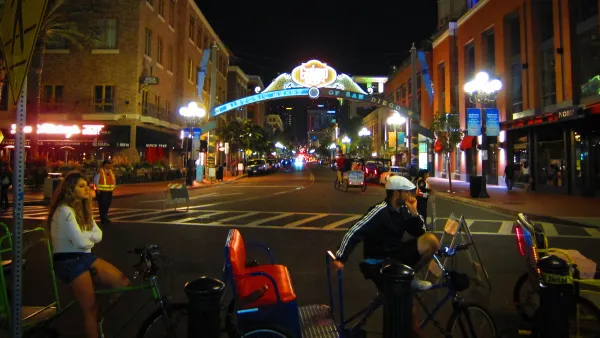Since enacting a spate of regulations on short-term rentals, the city has removed over 7,000 illegal listings from online platforms.

A year after San Diego began requiring licenses for short-term rentals, the city says it has removed over 7,000 illegal listings from online platforms.
According to an article by Lori Weisberg and Roxana Popescu in The San Diego Union-Tribune, “Among the almost 1,800 cases the city has processed, there were nearly 500 unlicensed rentals, more than 400 units that didn’t post a host’s contact information so it was visible to the public, and dozens more instances where hosts were unresponsive to complaints about noise.”
Last year’s ordinance was the city’s first attempt to regulate rentals under 30 days. It caps licenses at one per person and citywideSTRs at 6,592. “Current regulations allow just one license per person, plus a citywide cap of 6,592 licenses for the rental of entire homes for at least 90 days out of the year. Since May of last year, the city has issued more than 5,800 two-year licenses – at a cost of $1,000 each – for whole-home rentals throughout the city.”
Most owners have complied with regulations, and the city only assessed six $1,000 fines. “Revenue to the city from license and application fees has generated more than $7.5 million as of June 30, which so far has more than covered program enforcement costs of over $6.7 million.”
While the city relied on an external analyst to identify non-compliant listings over the last year, the new budget doesn’t include funding for the company. The city plans to rely on STR platforms to self-report listings, which could reduce the effectiveness of the program.
City officials are meeting to discuss potential changes to the program, acknowledging that some owners have gone to unexpected lengths to subvert the rules and operate multiple rentals.
FULL STORY: San Diego’s short-term rental regs a year later: Is the city cracking down on scofflaws?

National Parks Layoffs Will Cause Communities to Lose Billions
Thousands of essential park workers were laid off this week, just before the busy spring break season.

Retro-silient?: America’s First “Eco-burb,” The Woodlands Turns 50
A master-planned community north of Houston offers lessons on green infrastructure and resilient design, but falls short of its founder’s lofty affordability and walkability goals.

Delivering for America Plan Will Downgrade Mail Service in at Least 49.5 Percent of Zip Codes
Republican and Democrat lawmakers criticize the plan for its disproportionate negative impact on rural communities.

Test News Post 1
This is a summary

Test News Headline 46
Test for the image on the front page.

Balancing Bombs and Butterflies: How the National Guard Protects a Rare Species
The National Guard at Fort Indiantown Gap uses GIS technology and land management strategies to balance military training with conservation efforts, ensuring the survival of the rare eastern regal fritillary butterfly.
Urban Design for Planners 1: Software Tools
This six-course series explores essential urban design concepts using open source software and equips planners with the tools they need to participate fully in the urban design process.
Planning for Universal Design
Learn the tools for implementing Universal Design in planning regulations.
EMC Planning Group, Inc.
Planetizen
Planetizen
Mpact (formerly Rail~Volution)
Great Falls Development Authority, Inc.
HUDs Office of Policy Development and Research
NYU Wagner Graduate School of Public Service





























